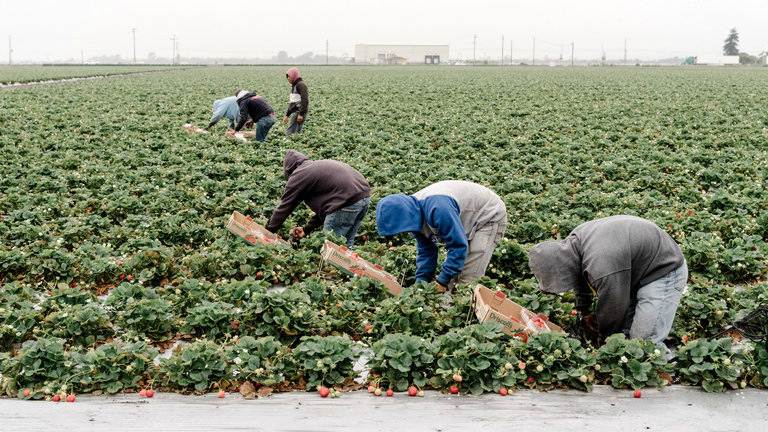The New York Times(9/6/16) featured a profile of Driscoll’s, described by reporter Stephanie Strom as “the family-owned berry juggernaut.” “No other company in the world grows berries exactly like these,” readers were told. “Driscoll’s is betting that once consumers know why its berries are distinctive they will demand them by name,” readers were told.
“The company’s YouTube channel will feature stories told by consumers about why berries make them happy.” “Driscoll’s strawberries trace their heritage to the late 1800s, when ‘Aunt Lou’ came home from a trip to Sweetbriar, California, carrying some plants that she swore produced the best strawberries she had ever eaten.” The genetic work they do “is the reason that growers want to grow for us and not someone else.” All of this readers were told by the New York Times.
What readers would have no clue about would be the four years of organizing, the walkouts, picket lines and lawsuits over labor violations leading to Driscoll’s being the subject of a high-profile international boycott. Wage theft, poverty wages, hostile and unhealthy conditions—all of these have been reported. One of the workers lawsuits went to the Washington state supreme court; they won a 2015 decision that ensured paid rest breaks for farmworkers statewide.
The Times story came with a slideshow in which company owners got a portrait but farmworkers’ faces were hidden. Contrast that with the work of writer and photographer David Bacon, who has profiled Driscoll’s farmworkers, includingFelimon Pineda, vice president of Familias Unidas por la Justicia, the independent union from Washington state.
After the Times piece ran, farmworkers at major Driscoll’s supplier Sakuma Brothers Farms voted to join that union and have called for a suspension of the boycott. A story in Washington’s The Stranger (9/13/16) reported on a celebration, noting a banner that read “A Victory for Our Children” and another saying “Respect the People Who Grow Your Food.”
“This news from the fields of Sakuma Brothers Farm is truly inspiring,” said Dana Geffner, of the Fair World Project, which helped facilitate dialogue between workers and the company. “This agreement is both proof of the power of workers organizing and also proof of the power of consumers who stood in solidarity with these farmworkers during their four-year quest to negotiate a fair contract.”
It would seem farmworkers and their allies were able to make their voices heard—despite the deafening silence of the likes of the New York Times.
Janine Jackson is FAIR’s program director and the producer and host of CounterSpin.
Read the original post here

